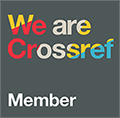Krizleri Yönlendirmek: Avrupa’nın Dört Ülkesinden Öğrenciler Üzerindeki Etkinin İncelenmesi
DOI:
https://doi.org/10.33308/26674874.2024381661Anahtar Kelimeler:
Krizler- Yükseköğretim- Belçika- Hırvatistan- Polonya- RomanyaÖzet
Kriz, bir yargı veya karar gerektiren herhangi bir zorlu durumdur. İnsanlar yaşamları boyunca mikro, mezo ve makro düzeylerde krizlere maruz kalırlar. Son zamanlarda birçok araştırma makro düzeydeki krizleri ele almaktadır. Salgın hastalıklar, savaşlar, depremler gibi makro düzeyde karşılaştığımız kriz durumları ve günlük durum ve yaşamdaki önemli zorluklar, kriz zamanlarında yükseköğretim kurumlarında öğrenme ve öğretmeyi keşfetme ihtiyacını doğurmaktadır. Araştırmanın amacı, yükseköğretimdeki öğrenciler arasında makro düzeyde krizlerle başa çıkma stratejilerini belirlemektir. Bu amaçla, odak grup yöntemi kullanılarak nitel bir araştırma yürütülmüştür. Belçika, Hırvatistan, Polonya ve Romanya'dan farklı profillerden toplam 40 öğrencinin katıldığı dört odak grup çalışması gerçekleştirilmiştir. Sonuçlar, kriz durumlarında çoğu katılımcı için en büyük zorluğun sosyal destek yokluğu olduğunu göstermektedir. Katılımcılar cevaplarında uzaktan eğitimin zorluklarını tartışmış ve "ekran yorgunluğunu" bir engel olarak belirtmişlerdir. Buna rağmen katılımcılar, kriz zamanlarının kendi güçlü yönlerini keşfetmelerini sağladığını ve bunları gelecekteki olası krizlerde başa çıkma stratejileri olarak kullanabileceklerini belirtmişlerdir.
İndirmeler
Referanslar
Ammar, A., Mueller, P., Trabelski K et al. (2020). Psychological consequences of COVID-19 home confinement: The ECLB-COVID19 multicenter study. PLoS One. 15(11), e0240204. DOI: https://doi.org/10.1371/journal.pone.0240204
Aristovnik, A., Keržič, D., Ravšelj, D., Tomaževič, N., & Umek, L. (2020). Impacts of the COVID-19 pandemic on life of higher education students: A global perspective. Sustainability, 12(20), 8438. DOI: https://doi.org/10.3390/su12208438
Braun, V., & Clarke, V. (2006). Using thematic analysis in psychology. Qualitative Research in Psychology, 3(2), 77-101. DOI: https://doi.org/10.1191/1478088706qp063oa
Burgess, S., & Sievertsen, H. H. (2020). Schools, Skills, and Learning: The Impact of COVID-19 on Education. VoxEU.Org. https://voxeu.org/article/impact-covid-19-education
Carver, C. S. (2013). Coping. In M. D. Gellman & J. R. Turner (Eds.) Encyclopedia of behavioral medicine (pp.496-500). Springer. DOI: https://doi.org/10.1007/978-1-4419-1005-9_1635
Castleberry, A., & Nolen, A. (2018). Thematic analysis of qualitative research data: is it as easy as it sounds? Currents in Pharmacy Teaching and Learning, 10(6), 807-815. DOI: https://doi.org/10.1016/j.cptl.2018.03.019
Chandra, Y. (2020). Online education during COVID-19: Perception of academic stress and emotional intelligence coping strategies among college students. Asian Education and Development Studies, 10(2), 229-238. DOI: https://doi.org/10.1108/AEDS-05-2020-0097
Chłoń-Domińczak, A. (2017). Changes in the Education System in Poland. ESPN Flash Report 2017/38 https://ec.europa.eu/social/BlobServlet?docId=17891&langId=en
Edelhauser, E., & Lupu-Dima, L. (2021). One year of online education in COVID-19 age, a challenge for the Romanian education system. International Journal of Environmental Research and Public Health, 18(15), Article 15. DOI: https://doi.org/10.3390/ijerph18158129
European Council [EC]. (2023). Impact of Russia's Invasion of Ukraine on the Markets: EU Response. https://www.consilium.europa.eu/en/policies/eu-response-ukraine-invasion/impact-of-russia-s-invasion-of-ukraine-on-the-markets-eu-response/
Eurydice (2022). The Polish Education System in Brief. https://eurydice.org.pl/system-edukacji-w-polsce/the-polish-education-system-in-brief-202122
Government of the Republic of Croatia. (2020). Odluka o obustavi izvođenja nastave u visokim učilištima, srednjim i osnovnim školama te redovnog rada ustanova predškolskog odgoja i obrazovanja i uspostavi nastave na daljinu [Decision to suspend teaching in higher education, secondary and primary schools and the regular operation of early childhood education institutions]. https://narodne-novine.nn.hr/clanci/sluzbeni/2020_03_29_670.html
Grigorescu, A. F., & Scarlat, C. (2023). Online technologies in teaching and learning. Lessons learnt while teaching during COVID-19 pandemic in Romania: Towards a “dual” education system. In M. Carmo (Ed.), Education applications & developments VIII (pp.63-81). inScience Press.
Heitzman, J. (2020). Impact of COVID-19 pandemic on mental health. Psychiatria Polska, 54(2), 187-198. DOI: https://doi.org/10.12740/PP/120373
Hofer, S. I., Nistor, N., & Scheibenzuber, C. (2021) Online teaching and learning in higher education: Lessons learned in crisis situations. Computers in Human Behavior, 121(August), 106789. DOI: https://doi.org/10.1016/j.chb.2021.106789
Holotescu, C., Grosseck, G., Andone, D., Gunesch, L., Nedelcu, V. D., Ivanova, M., Dumbraveanu, R., & Constandache, L. (2020). Romanian educational system response during the COVID-19 pandemic. International Scientific Conferences, 3, 11–30. DOI: https://doi.org/10.12753/2066-026X-20-171
Keegan, D. J. (1980). On defining distance education. Distance education, 1(1), 13-36. DOI: https://doi.org/10.1080/0158791800010102
Kenniscentrum Kinderrechten & Jeugdonderzoeksplatform (2022). De impact van de coronamaatregelen op kinderen, jongeren en jongvolwassenen. Een systematische literatuurstudie. Onderzoeksrapport in opdracht van het Departement Cultuur, Jeugd & Media. https://www.vlaanderen.be/cjm/sites/default/files/2022-10/rapport%20volledig.pdf
Kim, J. (2020). Learning and teaching online during Covid-19: Experiences of student teachers in an early childhood education practicum. International Journal of Early Childhood, 52(2), 145-158. DOI: https://doi.org/10.1007/s13158-020-00272-6
Liu, Y., & Shirley, T. (2021). Without crossing a border: exploring the impact of shifting study abroad online on students' learning and intercultural competence development during the COVID-19 pandemic. Online Learning, 25(1), 182-194. DOI: https://doi.org/10.24059/olj.v25i1.2471
Markušić, S., Stanko, D., Korbar, T., Belić, N., Penava, D., & Kordić, B. (2020). The Zagreb (Croatia) M5. 5 Earthquake on 22 March 2020. Geosciences, 10(7), 252. DOI: https://doi.org/10.3390/geosciences10070252
Minister of Education (2022). Minister edukacji: kolejne 200-300 tys. dzieci ukraińskich w polskich szkołach. https://samorzad.pap.pl/kategoria/aktualnosci/minister-edukacji-kolejne-200-300-tys-dzieci-ukrainskich-w-polskich-szkolach
Ministry of Health. (2020). Odluka o proglašenju epidemije COVID-19 uzrokovana virusom SARS-CoV-2. https://zdravstvo.gov.hr/UserDocsImages/2020%20CORONAVIRUS/ODLUKA%20O%20PROGLA%C5%A0ENJU%20EPIDEMIJE%20BOLESTI%20COVID-19.pdf
Mok, K. H. (2022). Impact of COVID-19 on higher education: critical reflections. Higher Education Policy, 35(3), 563-567. DOI: https://doi.org/10.1057/s41307-022-00285-x
Neuberg, M., Višnjić-Jevtić, M. i Špoljarić, M. (2022). Mentoriranje studenata sestrinstva i odgojiteljskog studija tijekom pandemije bolesti Covid-19. In A. Zovko, N. & Vukelić, I. Miočić (Eds.), Prema postpandemijskom obrazovanju: kako osnažiti sustav odgoja i obrazovanja? (pp.415–430). Sveučilište u Rijeci, Filozofski fakultet.
Nicolau, C., Henter, R., Roman, N., Neculau, A., & Miclaus, R. (2020). Tele-education under the COVID-19 crisis: Asymmetries in Romanian education. Symmetry, 12(9), Article 9. DOI: https://doi.org/10.3390/sym12091502
Odrowąż-Coates, A. (2020). Chaos theory and the neoliberal English-based dimension of the Polish higher education reforms 2018/2019. Education as Change, 24, 1–19. DOI: https://doi.org/10.25159/1947-9417/5913
Ovie, G. (2022). Crisis response in higher education: insights from educational leaders. Journal of Educational Thought/Revue de la Pensée Educative, 55(1), 43-68.
Rasli, A., Tee, M., Lai, Y. L., Tiu, Z. C., & Soon, E. H. (2022). Post-COVID-19 strategies for higher education institutions in dealing with unknown and uncertainties. Frontiers in Education, 7, 992063. DOI: https://doi.org/10.3389/feduc.2022.992063
Sas, A. (2023). Number of People Who Crossed the Polish Border from The War-Stricken Ukraine as of February 2023, by Date of Report. https://www.statista.com/statistics/1293564/ukrainian-refugees-in-poland/
Šenjug Golub, A., Rajić, V., & Dumančić, M. (2020). Zadovoljstvo studenata nastavom na daljinu tijekom COVID-19 pandemija na Učiteljskom fakultetu Sveučilišta u Zagrebu. Andragoški Glasnik 24, 50-64.
Statista (2022). Online Education in Poland - Statistics & Facts. https://www.statista.com/topics/8445/online-education-in-poland/#topicOverview
Statista (2023). School dropout rate Romania 2022. https://www.statista.com/statistics/1103336/school-dropout-rate-romania/ (Accessed on July 5, 2023).
United Nations [UN]. (2020). Policy Brief: Education During COVID-19 and Beyond. https://reliefweb.int/report/world/policy-brief-education-during-covid-19-and-beyond-august-2020?gclid=CjwKCAjws7WkBhBFEiwAIi1680U9-3Pkcbp_Kau-hSspgWr2DketRsWcEsvJYPuvj1KwQdBKxNC8KBoCsFoQAvD_BwE
Visković, I. (2021). “Miss having in-person classes” – university studying during the COVID-19 pandemic. Obrazovanie i nauka, 23(8), 61–83. DOI: https://doi.org/10.17853/1994-5639-2021-8-61-83
Višnjić-Jevtić, A., & Visković, I. (2021). Roditeljstvo u vrijeme pandemije Covid-19: perspektiva roditelja djece rane i predškolske dobi [Parenting at the time of the Covid-19 pandemic: the perspective of parents of early and preschool children]. Metodički ogledi: časopis za filozofiju odgoja, 28(1), 11-38. DOI: https://doi.org/10.21464/mo.28.1.4
World Health Organization. (2020). WHO announces COVID-19 outbreak a pandemic. https://www.euro.who.int/en/health-topics/health-emergencies/coronavirus-covid-19/news/news/2020/3/who-announces-covid-19-outbreak-a-pandemic
Zacher H, Rudolph CW. (2021). Individual differences and changes in subjective wellbeing during the early stages of the COVID-19 pandemic. Am Psychol., 76(1), 50-62. DOI: https://doi.org/10.1037/amp0000702
İndir
Yayınlanmış
Nasıl Atıf Yapılır
Sayı
Bölüm
Lisans
Telif Hakkı (c) 1970 Yaşadıkça Eğitim

Bu çalışma Creative Commons Attribution-NonCommercial-NoDerivatives 4.0 International License ile lisanslanmıştır.
Sisteme yüklemiş olunan makalenin kapsamı, sunduğu bulgular ve sonucu ve yorumları konusunda Yaşadıkça Eğitim [YE] dergisi Sahibi, Editör, Editör Yardımcısı, Hakemler ve Editör Kurulu'nun hiçbir sorumluluk taşımadığını kabul ederim.
Makalenin özgün olduğunu, herhangi bir başka dergiye yayımlanmak üzere gönderilmediği, daha önce yayımlanmadığını Yaşadıkça Eğitim [YE] dergisi Editörlüğü'ne beyan ederim.
Başlığı belirtilen makalenin, 5846 sayılı Fikir ve Sanat Eserleri Yasasının 22. maddesi gereğince çoğaltma, 23. maddesi gereğince yayma ve 25. maddesi gereğince her türlü taşıyıcı materyal üzerinde veya elektronik ortamda kamuya iletim haklarını Yaşadıkça Eğitim [YE] dergisine karşılıksız, koşulsuz ve süresiz olarak devredildiği, makale ile ilgili devredilen hakların dilediği zaman, mekan ve koşullarda kullanmaya Yaşadıkça Eğitim [YE] dergisinin yayıncısı olarak İstanbul Kültür Üniversitesi'nin yetkili kılınacağını onaylarım.





